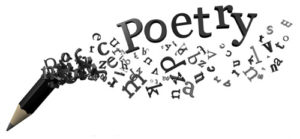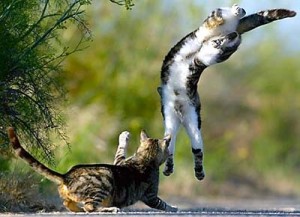Greetings! Welcome to another Poetry Peeps adventure on Poetry Friday!
You’re invited to try our challenge in the month of August! Here’s the scoop: We’re writing after the style of Jane Yolen’s eight line, unrhymed poem, “What the Bear Knows,” a poem written in honor of her 400th book, Bear Outside. Our topic is What the ____ Knows, modeled here by Joyce Sidman. Maybe you may know something other than what a bear knows. Maybe you know what the finch knows? or what linden trees know? maybe fishing creels? …mailboxes?! Are you thinking of something? Good! You’ve got a month to craft your creation(s), then share your offering (or someone else’s) with the rest of us on August 27th in a post and/or on social media with the tag #PoetryPals.
One of the problems with pulling your theme for the month out of your metaphorical hat is that occasionally that hat might have better suited another outfit. Either we were not in the mood for villanellery this month, or we’d nearly forgotten how to write one, or we remembered there was a theme mid-villanelle – and there’s really no good way to change partners once you’ve started this dance. Suffice it to say, we each had more than a few moments of “Ugh!!!” -but in the immortal words of Sara Lewis Holmes, “What the heck, I’ve gotta have something – so here I go:”
Viva La Villa(nelle)! Sara’s poem is here; Liz’s poem is here. Laura’s is here. Cousin Mary Lee’s is here, and Tricia’s is here. Andi and Kelly are out on the beach, but they’ll come inside at some point. Heidi’s in the villa, along with Denise, writing about truth and lies. Michelle is joining with us, and Donette wrote a villanelle, too, though for a different project. I really appreciated Margaret’s jeremiad villanelle. Carol’s villanelle is here, and she’s open to suggestions to improve it. If this is your first time joining in, welcome! Other Poetry Peeps links will be dropped into the villa as I find them, so stay tuned!
Wait – whose bright idea was it to include dichotomy in this challenge? Oh, yeah, mine. ::sigh:: I started three villanelles, the first was contrasting past and future, which was fine, but sheesh, kinda grim. The second one, which I was really getting to like, started within the theme, but became completely mired in something wholly different – both off-theme and equally depressing. (This happens a lot for me when I have a repeating form. One sad thought gets bounced around endlessly.) SO! I started again, first taking time to read back over old villanelles from Poetry Seven projects in 2015, 2017, 2019 and the like. (Hmm… we do tend to hit this form in odd years, don’t we!?) I found that I often write villanelle when I’m emotional – qué sopresa, no? As I’ve mentioned, the repetition of the first and third lines, together with the iron-clad rhyme scheme tends to mimic how a thought can pound into the brain. Throughout the poem the theme tumbles over and over, end over end and if you’re not careful, you’ll get sick of the whole thing. Villanelles are really good for looking at all sides of a thing thoroughly.
My attitude toward friendship changed radically after seventh grade. After a year of false friends and being ignored en masse by almost all the girls who were once my friends, I learned to be all in, or all out – one or zero, nothing in between – if you showed the least little sign of turning on me, I’d find somewhere else to be. After eighth grade, and all the tearful promises of keeping in touch, I wondered, with a mixture of panic and plotting, what I’d do if I had to see those people again… Well. A couple of years ago, I found out… and honestly, this poem could have been my internal monologue. I imagine someone could perform this pretty well, slam-poetry style.
Attitude
Hah, no – I did not come here to be friends
My seventh grade heart bled to pay my dues
Now you’re my enemy – let’s not pretend.
You called me weird – said I would never blend
I tried, but you kept shifting social cues
So no, I did not come here to be friends.
Each cliquish tween sorority depends
On “Just ignore them, girls” – words which excuse.
Now? They’re my enemies. I won’t pretend.
Do you think that’s too much? Do you defend
Your “harmless childishness” like I’m confused?
Uh, no. I did not come here to make friends –
Nor did you – no, you came to condescend.
I shrank when bullied. You grew large, amused.
An enemy, clearly – let’s not pretend
~
We graduate together in the end,
They sign yearbooks and cry, keep up their ruse.
Years on – I will not look to them as friends
They made their choice – I refuse to pretend.
Mmm, nothing like the smell of scorched earth in the morning.
Poetry Friday today is hosted by Rebecca Herzog at Sloth Reads, which has one of the cutest little cartoon icons ever. A glasses wearing sloth! It me! Hop over to find more original and shared around poetry to kick off your weekend right. Don’t worry if you’re still mad over junior high – or your last job. It’ll pass, and if not, you can use it as fodder to make art which amuses you, if nothing else. The best revenge is living well – so take joy in your survival. ☮Happy Friday.☮
(NB: My mother would want me to add the caveat that poetry is a game of the mind, and I don’t really believe in enemies as a concept, just super difficult people, and of course I was perfectly chill and polite to former classmates, just… perhaps more chilly than my usual chill… Don’t worry – my ancestors remain unashamed. K? K.)



